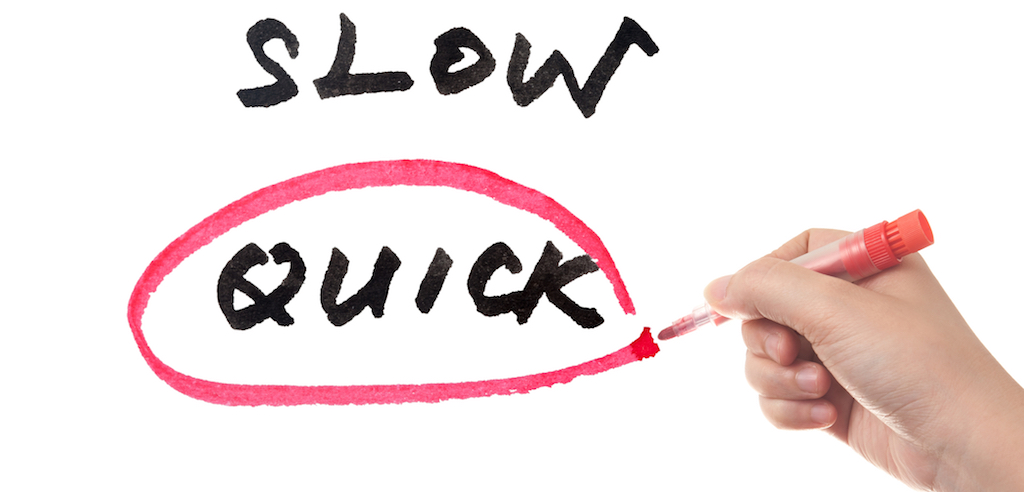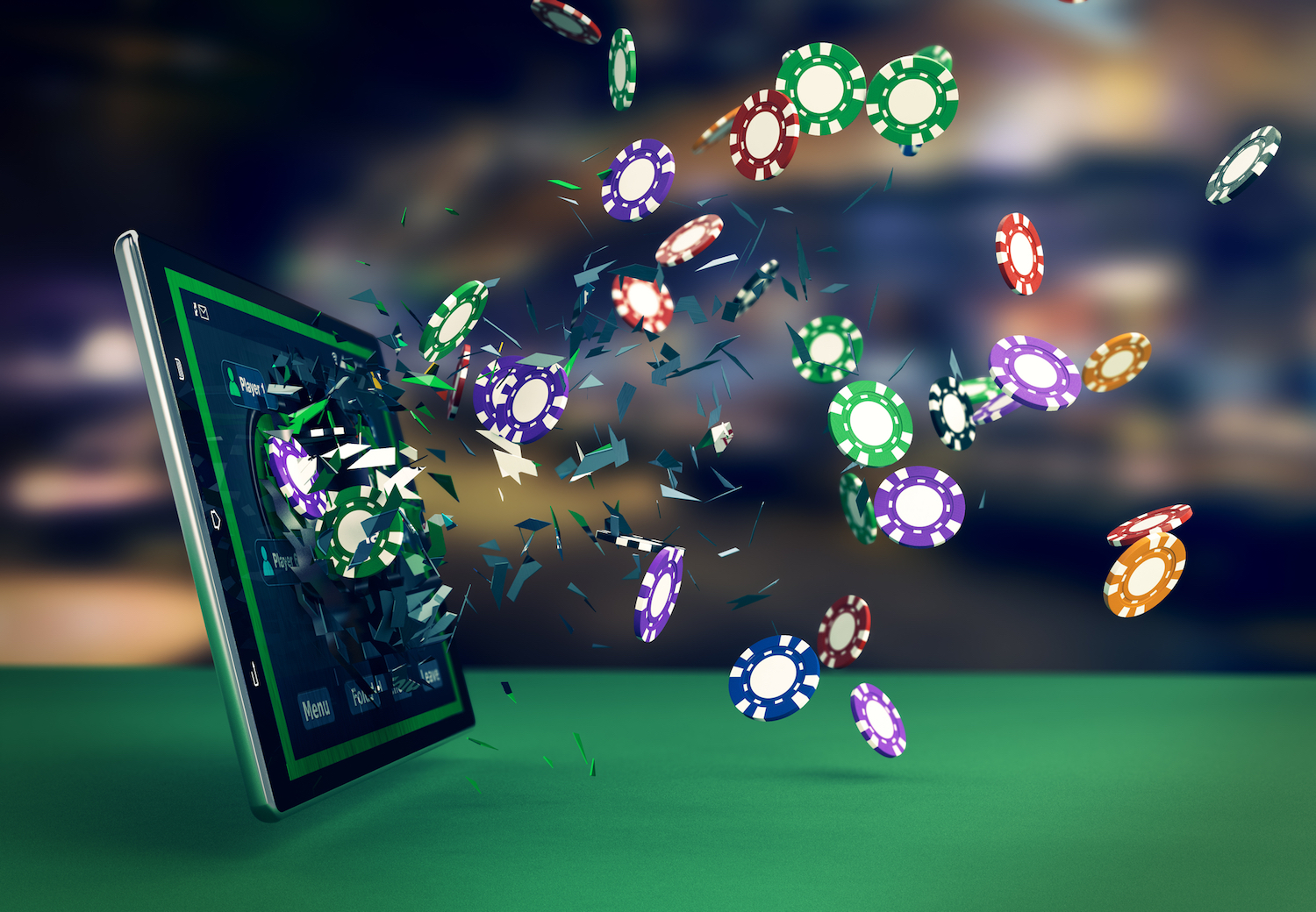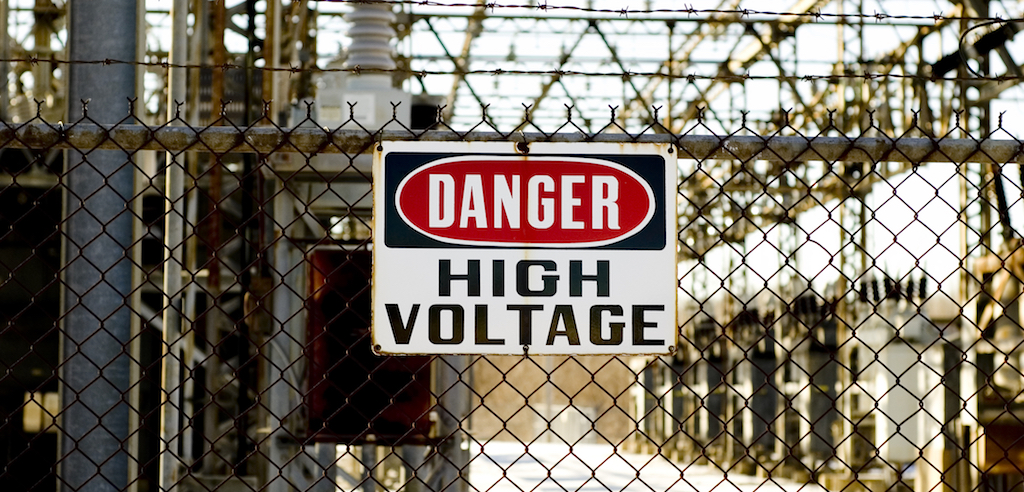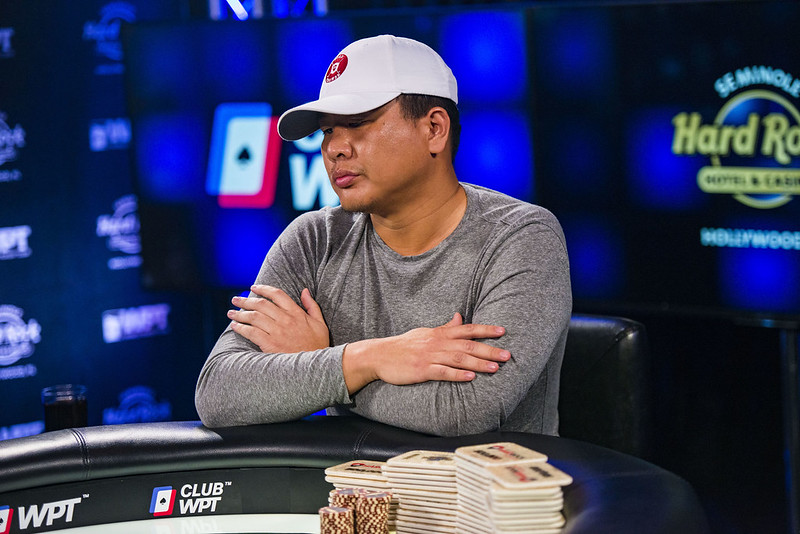As if the online poker smorgasbord weren’t big enough, PokerStars announced the World Championship of Online Poker (WCOOP) returns Aug. 30. The series features 75 events and $80 million guaranteed – the largest in the history of the series.
Running through Sept. 23, the series allows players of all buy-in levels a shot to be a world champion. The series runs the gamut of tournament type and promises another massive series for international players.
“WCOOP is a prestigious staple in the poker calendar and this year we are excited to bring players our biggest WCOOP ever, as well as adding extra excitement and value into the mix,” PokerStars managing director and commercial officer Severin Rasset said.
“We want to give players of all levels the opportunity to become a champion, so there will be lots of ways to get in on the action. Plus we’re particularly excited about setting poker fans up for the coming year with our new Slam Packages.”
A look at some of the highlights on the WCOOP schedule
Players ready to get in the action have a lot to look forward to. All events feature Low, Medium, and High buy-in tiers.
Those range from $2.20 to $25,000 and players will also find three series championships. These freezeout main events will be held on Sept. 20 and here’s a look at what to expect:
- Low $55 – $1.25 million guaranteed
- Medium $530 – $2 million guaranteed
- High $5,200 – $10 million guaranteed
Players can battle it out in Player of the Series leaderboards for these three categories as well. There will also be an overall champion named.
One part of the series is already underway – the $2.20, $22, $215 Phase Tournaments. The events run until Sept. 21 with guarantees of $250,000 for the $22 tournaments and $2 million for the $215. Here’s a look at the complete schedule:
| Date | Event |
|---|---|
| 30-Aug | 01-L, M, H: Phased Tournament |
| 30-Aug | 02-L: $109 NLHE [8-Max, Progressive KO, Sunday Slam], $1.5M Guaranteed |
| 30-Aug | 02-M: $1,050 NLHE [8-Max, Progressive KO, Sunday Slam], $2M Guaranteed |
| 30-Aug | 02-H: $10,300 NLHE [8-Max, Progressive KO, Sunday Slam], $1.5M Guaranteed |
| 30-Aug | 03-L: $55 PLO [6-Max], $125K Guaranteed |
| 30-Aug | 03-M: $530 PLO [6-Max], $250K Guaranteed |
| 30-Aug | 03-H: $5,200 PLO [6-Max, High Roller], $750K Guaranteed |
| 30-Aug | 04-L: $22 NLHE [Freezeout], $100K Guaranteed |
| 30-Aug | 04-M: $215 NLHE [Freezeout], $250K Guaranteed |
| 30-Aug | 04-H: $2,100 NLHE [Freezeout], $500K Guaranteed |
| 30-Aug | 05-L: $5.50 NLHE [8-Max, Turbo, Progressive KO, Freezeout, Mini Sunday Cooldown SE], $50K Guaranteed |
| 30-Aug | 05-M: $55 NLHE [8-Max, Turbo, Progressive KO, Freezeout, Sunday Cooldown SE], $250K Guaranteed |
| 30-Aug | 05-H: $530 NLHE [8-Max, Turbo, Progressive KO, Freezeout, Sunday Cooldown SE], $500K Guaranteed |
| 31-Aug | 06-L: $5.50 NLHE [6-Max, Progressive KO], $75K Guaranteed |
| 31-Aug | 06-M: $55 NLHE [6-Max, Progressive KO], $350K Guaranteed |
| 31-Aug | 06-H: $530 NLHE [6-Max, Progressive KO], $500K Guaranteed |
| 31-Aug | 07-L: $22 PLO8 [6-Max], $40K Guaranteed |
| 31-Aug | 07-M: $215 PLO8 [6-Max], $100K Guaranteed |
| 31-Aug | 07-H: $2,100 PLO8 [6-Max], $200K Guaranteed |
| 31-Aug | 08-L: $11 NLHE [8-Max, Freezeout], $50K Guaranteed |
| 31-Aug | 08-M: $109 NLHE [8-Max, Freezeout], $200K Guaranteed |
| 31-Aug | 08-H: $1,050 NLHE [8-Max, Freezeout], $250K Guaranteed |
| 1-Sep | 09-L: $11 NL 2-7 Single Draw, $10K Guaranteed |
| 1-Sep | 09-M: $109 NL 2-7 Single Draw, $25K Guaranteed |
| 1-Sep | 09-H: $1,050 NL 2-7 Single Draw, $75K Guaranteed |
| 1-Sep | 10-L: $109 NLHE [8-Max, Freezeout, Mini Super Tuesday SE], $350K Guaranteed |
| 1-Sep | 10-M: $1,050 NLHE [8-Max, Freezeout, Super Tuesday SE], $1M Guaranteed |
| 1-Sep | 10-H: $10,300 NLHE [8-Max, High Roller], $1M Guaranteed |
| 1-Sep | 11-L: $11 FLHE [6-Max], $12K Guaranteed |
| 1-Sep | 11-M: $109 FLHE [6-Max], $30K Guaranteed |
| 1-Sep | 11-H: $1,050 FLHE [6-Max], $75K Guaranteed |
| 1-Sep | 12-L: $5.50 NLHE [Heads-Up, Turbo, Progressive Total KO, Zoom], $50K Guaranteed |
| 1-Sep | 12-M: $55 NLHE [Heads-Up, Turbo, Progressive Total KO, Zoom], $175K Guaranteed |
| 1-Sep | 12-H: $530 NLHE [Heads-Up, Turbo, Progressive Total KO, Zoom], $200K Guaranteed |
| 2-Sep | 13-L: $11 NLHE [Midweek Freeze], $60K Guaranteed |
| 2-Sep | 13-M: $109 NLHE [Midweek Freeze], $200K Guaranteed |
| 2-Sep | 13-H: $1,050 NLHE [Midweek Freeze], $400K Guaranteed |
| 2-Sep | 14-L: $11 PLO [6-Max], $30K Guaranteed |
| 2-Sep | 14-M: $109 PLO [6-Max], $100K Guaranteed |
| 2-Sep | 14-H: $1,050 PLO [6-Max], $300K Guaranteed |
| 2-Sep | 15-L: $5.50+R NLHE [8-Max], $75K Guaranteed |
| 2-Sep | 15-M: $55+R NLHE [8-Max], $250K Guaranteed |
| 2-Sep | 15-H: $530+R NLHE [8-Max], $400K Guaranteed |
| 3-Sep | 16-L: $109 NLHE [8-Max, Progressive KO, Freezeout, Mini Thursday Thrill SE], $500K Guaranteed |
| 3-Sep | 16-M: $1,050 NLHE [8-Max, Progressive KO, Freezeout, Thursday Thrill SE], $1M Guaranteed |
| 3-Sep | 16-H: $10,300 NLHE [8-Max, Progressive KO, High Roller], $1M Guaranteed |
| 3-Sep | 17-L: $11 6+ Hold'em [6-Max], $30K Guaranteed |
| 3-Sep | 17-M: $109 6+ Hold'em [6-Max], $40K Guaranteed |
| 3-Sep | 17-H: $1,050 6+ Hold'em [6-Max], $100K Guaranteed |
| 3-Sep | 18-L: $22 NLHE [Freezeout], $75K Guaranteed |
| 3-Sep | 18-M: $215 NLHE [Freezeout], $200K Guaranteed |
| 3-Sep | 18-H: $2,100 NLHE, $400K Guaranteed |
| 5-Sep | 19-L: $5.50 NLHE [Freezeout, Afternoon Deep Stack], $50K Guaranteed |
| 5-Sep | 19-M: $55 NLHE [Freezeout, Afternoon Deep Stack], $150K Guaranteed |
| 5-Sep | 19-H: $530 NLHE [Freezeout, Afternoon Deep Stack], $250K Guaranteed |
| 5-Sep | 20-L: $11 HORSE, $20K Guaranteed |
| 5-Sep | 20-M: $109 HORSE, $50K Guaranteed |
| 5-Sep | 20-H: $1,050 HORSE, $100K Guaranteed |
| 5-Sep | 21-L: $55 NLHE [6-Max, Progressive KO], $250K Guaranteed |
| 5-Sep | 21-M: $530 NLHE [6-Max, Progressive KO], $500K Guaranteed |
| 5-Sep | 21-H: $5,200 NLHE [6-Max, Progressive KO], $500K Guaranteed |
| 5-Sep | 22-L: $11 NL 5-Card Draw, $15K Guaranteed |
| 5-Sep | 22-M: $109 NL 5-Card Draw, $25K Guaranteed |
| 5-Sep | 22-H: $1,050 NL 5-Card Draw, $50K Guaranteed |
| 6-Sep | 23-L: $5.50 NLHE [Freezeout, Mini Sunday Kickoff SE], $30K Guaranteed |
| 6-Sep | 23-M: $55 NLHE [Freezeout, Sunday Kickoff SE], $200K Guaranteed |
| 6-Sep | 23-H: $530 NLHE [Freezeout], $400K Guaranteed |
| 6-Sep | 24-L: $11 NLHE [8-Max, Progressive KO, Freezeout], $100K Guaranteed |
| 6-Sep | 24-M: $109 NLHE [8-Max, Progressive KO, Freezeout, Sunday Warm-Up SE], $300K Guaranteed |
| 6-Sep | 24-H: $1,050 NLHE [8-Max, Progressive KO, Freezeout, Sunday Warm-Up SE], $500K Guaranteed |
| 6-Sep | 25-L: $215 NLHE [8-Max, Sunday Slam], $1M Guaranteed |
| 6-Sep | 25-M: $2,100 NLHE [8-Max, Sunday Slam], $1M Guaranteed |
| 6-Sep | 25-H: $25,000 NLHE [8-Max, Super High Roller Sunday Slam], $2.5M Guaranteed |
| 6-Sep | 26-L: $22 5-Card PLO [6-Max], $40K Guaranteed |
| 6-Sep | 26-M: $215 5-Card PLO [6-Max], $100K Guaranteed |
| 6-Sep | 26-H: $2,100 5-Card PLO [6-Max], $300K Guaranteed |
| 6-Sep | 27-L: $11 NLHE [Freezeout], $50K Guaranteed |
| 6-Sep | 27-M: $109 NLHE [Freezeout], $200K Guaranteed |
| 6-Sep | 27-H: $1,050 NLHE [Freezeout], $300K Guaranteed |
| 6-Sep | 28-L: $22 NLHE [8-Max, Turbo, Progressive KO, Freezeout, Mini Sunday Cooldown SE], $125K Guaranteed |
| 6-Sep | 28-M: $215 NLHE [8-Max, Turbo, Progressive KO, Freezeout, Sunday Cooldown SE], $300K Guaranteed |
| 6-Sep | 28-H: $2,100 NLHE [8-Max, Turbo, Progressive KO, Freezeout, Sunday Cooldown SE], $400K Guaranteed |
| 7-Sep | 29-L: $11 NLHE [Progressive KO], $150K Guaranteed |
| 7-Sep | 29-M: $109 NLHE [Progressive KO], $500K Guaranteed |
| 7-Sep | 29-H: $1,050 NLHE [Progressive KO], $750K Guaranteed |
| 7-Sep | 30-L: $5.50 NLO8 [6-Max], $15K Guaranteed |
| 7-Sep | 30-M: $55 NLO8 [6-Max], $50K Guaranteed |
| 7-Sep | 30-H: $530 NLO8 [6-Max], $100K Guaranteed |
| 7-Sep | 31-L: $5.50 NLHE [4-Max], $35K Guaranteed |
| 7-Sep | 31-M: $55 NLHE [4-Max], $125K Guaranteed |
| 7-Sep | 31-H: $530 NLHE [4-Max], $250K Guaranteed |
| 8-Sep | 32-L: $11 NLHE [Progressive KO, Freezeout], $75K Guaranteed |
| 8-Sep | 32-M: $109 NLHE [Progressive KO, Freezeout], $250K Guaranteed |
| 8-Sep | 32-H: $1,050 NLHE [Progressive KO, Freezeout], $350K Guaranteed |
| 8-Sep | 33-L: $55 NLHE [8-Max, Mini Super Tuesday SE], $350K Guaranteed |
| 8-Sep | 33-M: $530 NLHE [8-Max, Super Tuesday SE], $750K Guaranteed |
| 8-Sep | 33-H: $5,200 NLHE [8-Max, High Roller], $750K Guaranteed |
| 8-Sep | 34-L: $22 8-Game, $30K Guaranteed |
| 8-Sep | 34-M: $215 8-Game, $60K Guaranteed |
| 8-Sep | 34-H: $2,100 8-Game, $150K Guaranteed |
| 8-Sep | 35-L: $22 NLHE [6-Max, Freezeout], $75K Guaranteed |
| 8-Sep | 35-M: $215 NLHE [6-Max, Freezeout], $200K Guaranteed |
| 8-Sep | 35-H: $2,100 NLHE [6-Max, Freezeout], $400K Guaranteed |
| 9-Sep | 36-L: $22 NLHE [Midweek Freeze], $150K Guaranteed |
| 9-Sep | 36-M: $215 NLHE [Midweek Freeze], $250K Guaranteed |
| 9-Sep | 36-H: $2,100 NLHE [Midweek Freeze], $400K Guaranteed |
| 9-Sep | 37-L: $55 PLO [6-Max], $75K Guaranteed |
| 9-Sep | 37-M: $530 PLO [6-Max], $200K Guaranteed |
| 9-Sep | 37-H: $5,200 PLO [6-Max, High Roller], $500K Guaranteed |
| 9-Sep | 38-L: $11 NLHE [Freezeout], $50K Guaranteed |
| 9-Sep | 38-M: $109 NLHE [Freezeout], $175K Guaranteed |
| 9-Sep | 38-H: $1,050 NLHE [Freezeout], $300K Guaranteed |
| 10-Sep | 39-L: $55 NLHE [Progressive KO, Mini Thursday Thrill SE], $500K Guaranteed |
| 10-Sep | 39-M: $530 NLHE [Progressive KO, Thursday Thrill SE], $1M Guaranteed |
| 10-Sep | 39-H: $5,200 NLHE [Progressive KO, High Roller], $1M Guaranteed |
| 10-Sep | 40-L: $11 Razz, $15K Guaranteed |
| 10-Sep | 40-M: $109 Razz, $40K Guaranteed |
| 10-Sep | 40-H: $1,050 Razz, $75K Guaranteed |
| 10-Sep | 41-L: $22 NLHE [6-Max, Freezeout], $75K Guaranteed |
| 10-Sep | 41-M: $215 NLHE [6-Max, Freezeout], $200K Guaranteed |
| 10-Sep | 41-H: $2,100 NLHE [6-Max], $400K Guaranteed |
| 12-Sep | 42-L: $11 NLHE [8-Max, Progressive KO, Freezeout, Afternoon Deep Stack], $75K Guaranteed |
| 12-Sep | 42-M: $109 NLHE [8-Max, Progressive KO, Freezeout, Afternoon Deep Stack], $200K Guaranteed |
| 12-Sep | 42-H: $1,050 NLHE [8-Max, Progressive KO, Freezeout, Afternoon Deep Stack], $250K Guaranteed |
| 12-Sep | 43-L: $5.50 NLHE/PLO [6-Max], $25K Guaranteed |
| 12-Sep | 43-M: $55 NLHE/PLO [6-Max], $60K Guaranteed |
| 12-Sep | 43-H: $530 NLHE/PLO [6-Max], $125K Guaranteed |
| 12-Sep | 44-L: $22 NLHE, $150K Guaranteed |
| 12-Sep | 44-M: $215 NLHE, $300K Guaranteed |
| 12-Sep | 44-H: $2,100 NLHE, $400K Guaranteed |
| 12-Sep | 45-L: $11 FL Badugi [6-Max], $10K Guaranteed |
| 12-Sep | 45-M: $109 FL Badugi [6-Max], $20K Guaranteed |
| 12-Sep | 45-H: $1,050 FL Badugi [6-Max], $50K Guaranteed |
| 13-Sep | 46-L: $11 NLHE [8-Max, Freezeout, Mini Sunday Kickoff SE], $50K Guaranteed |
| 13-Sep | 46-M: $109 NLHE [8-Max, Freezeout, Sunday Kickoff SE], $200K Guaranteed |
| 13-Sep | 46-H: $1,050 NLHE [8-Max, Freezeout], $300K Guaranteed |
| 13-Sep | 47-L: $22 NLHE [Freezeout], $125K Guaranteed |
| 13-Sep | 47-M: $215 NLHE [Freezeout, Sunday Warm-Up SE], $400K Guaranteed |
| 13-Sep | 47-H: $2,100 NLHE [Freezeout, Sunday Warm-Up SE], $500K Guaranteed |
| 13-Sep | 48-L: $55 NLHE [8-Max, Progressive KO, Sunday Slam], $1M Guaranteed |
| 13-Sep | 48-M: $530 NLHE [8-Max, Progressive KO, Sunday Slam], $1.5M Guaranteed |
| 13-Sep | 48-H: $5,200 NLHE [8-Max, Progressive KO, Sunday Slam], $1M Guaranteed |
| 13-Sep | 49-L: $22 NLO8 [6-Max, Progressive KO], $50K Guaranteed |
| 13-Sep | 49-M: $215 NLO8 [6-Max, Progressive KO], $100K Guaranteed |
| 13-Sep | 49-H: $2,100 NLO8 [6-Max, Progressive KO], $200K Guaranteed |
| 13-Sep | 50-L: $11 NLHE [6-Max], $100K Guaranteed |
| 13-Sep | 50-M: $109 NLHE [6-Max], $250K Guaranteed |
| 13-Sep | 50-H: $1,050 NLHE [6-Max], $500K Guaranteed |
| 13-Sep | 51-L: $5.50 NLHE [8-Max, Turbo, Progressive KO, Freezeout, Mini Sunday Cooldown SE], $50K Guaranteed |
| 13-Sep | 51-M: $55 NLHE [8-Max, Turbo, Progressive KO, Freezeout, Sunday Cooldown SE], $250K Guaranteed |
| 13-Sep | 51-H: $530 NLHE [8-Max, Turbo, Progressive KO, Freezeout, Sunday Cooldown SE], $400K Guaranteed |
| 14-Sep | 52-L: $5.50 NLHE [6-Max, Progressive KO], $75K Guaranteed |
| 14-Sep | 52-M: $55 NLHE [6-Max, Progressive KO], $350K Guaranteed |
| 14-Sep | 52-H: $530 NLHE [6-Max, Progressive KO], $500K Guaranteed |
| 14-Sep | 53-L: $5.50 PLO8 [8-Max], $15K Guaranteed |
| 14-Sep | 53-M: $55 PLO8 [8-Max], $50K Guaranteed |
| 14-Sep | 53-H: $530 PLO8 [8-Max], $100K Guaranteed |
| 14-Sep | 54-L: $11 NLHE [8-Max, Win the Button], $50K Guaranteed |
| 14-Sep | 54-M: $109 NLHE [8-Max, Win the Button], $175K Guaranteed |
| 14-Sep | 54-H: $1,050 NLHE [8-Max, Win the Button], $250K Guaranteed |
| 15-Sep | 55-L: $22 HORSE, $25K Guaranteed |
| 15-Sep | 55-M: $215 HORSE, $50K Guaranteed |
| 15-Sep | 55-H: $2,100 HORSE, $150K Guaranteed |
| 15-Sep | 56-L: $22 NLHE [8-Max, Freezeout], $125K Guaranteed |
| 15-Sep | 56-M: $215 NLHE [8-Max, Freezeout, Mini Super Tuesday SE], $400K Guaranteed |
| 15-Sep | 56-H: $2,100 NLHE [8-Max, Super Tuesday SE], $750K Guaranteed |
| 15-Sep | 57-L: $22 FL 2-7 Triple Draw, $15K Guaranteed |
| 15-Sep | 57-M: $215 FL 2-7 Triple Draw, $40K Guaranteed |
| 15-Sep | 57-H: $2,100 FL 2-7 Triple Draw, $100K Guaranteed |
| 15-Sep | 58-L: $5.50 NLHE [8-Max, Progressive KO, Freezeout], $35K Guaranteed |
| 15-Sep | 58-M: $55 NLHE [8-Max, Progressive KO, Freezeout], $125K Guaranteed |
| 15-Sep | 58-H: $530 NLHE [8-Max, Progressive KO, Freezeout], $250K Guaranteed |
| 16-Sep | 59-L: $55 NLHE [8-Max, Midweek Freeze], $175K Guaranteed |
| 16-Sep | 59-M: $530 NLHE [8-Max, Midweek Freeze], $350K Guaranteed |
| 16-Sep | 59-H: $5,200 NLHE [8-Max, Midweek Freeze], $500K Guaranteed |
| 16-Sep | 60-L: $5.50+R PLO [6-Max], $35K Guaranteed |
| 16-Sep | 60-M: $55+R PLO [6-Max], $125K Guaranteed |
| 16-Sep | 60-H: $530+R PLO [6-Max], $300K Guaranteed |
| 16-Sep | 61-L: $11 NLHE [6-Max, Progressive KO, Freezeout], $60K Guaranteed |
| 16-Sep | 61-M: $109 NLHE [6-Max, Progressive KO, Freezeout], $250K Guaranteed |
| 16-Sep | 61-H: $1,050 NLHE [6-Max, Progressive KO, Freezeout], $350K Guaranteed |
| 17-Sep | 62-L: $11 Stud Hi Lo, $15K Guaranteed |
| 17-Sep | 62-M: $109 Stud Hi Lo, $35K Guaranteed |
| 17-Sep | 62-H: $1,050 Stud Hi Lo, $75K Guaranteed |
| 17-Sep | 63-L: $22 NLHE [8-Max, Progressive KO, Freezeout], $250K Guaranteed |
| 17-Sep | 63-M: $215 NLHE [8-Max, Progressive KO, Freezeout, Mini Thursday Thrill SE], $500K Guaranteed |
| 17-Sep | 63-H: $2,100 NLHE [8-Max, Progressive KO, Freezeout, Thursday Thrill SE], $750K Guaranteed |
| 17-Sep | 64-L: $11 FLO8 [8-Max], $15K Guaranteed |
| 17-Sep | 64-M: $109 FLO8 [8-Max], $40K Guaranteed |
| 17-Sep | 64-H: $1,050 FLO8 [8-Max], $100K Guaranteed |
| 17-Sep | 65-L: $11 NLHE [6-Max, Freezeout], $60K Guaranteed |
| 17-Sep | 65-M: $109 NLHE [6-Max, Freezeout], $150K Guaranteed |
| 17-Sep | 65-H: $1,050 NLHE [6-Max], $250K Guaranteed |
| 19-Sep | 66-L: $5.50 NLHE [Freezeout, Afternoon Deep Stack], $40K Guaranteed |
| 19-Sep | 66-M: $55 NLHE [Freezeout, Afternoon Deep Stack], $150K Guaranteed |
| 19-Sep | 66-H: $530 NLHE [Freezeout, Afternoon Deep Stack], $250K Guaranteed |
| 19-Sep | 67-L: $11 NLO8 [8-Max], $20K Guaranteed |
| 19-Sep | 67-M: $109 NLO8 [8-Max], $50K Guaranteed |
| 19-Sep | 67-H: $1,050 NLO8 [8-Max], $125K Guaranteed |
| 19-Sep | 68-L: $11 NLHE [8-Max, Progressive KO], $150K Guaranteed |
| 19-Sep | 68-M: $109 NLHE [8-Max, Progressive KO], $500K Guaranteed |
| 19-Sep | 68-H: $1,050 NLHE [8-Max, Progressive KO], $600K Guaranteed |
| 19-Sep | 69-L: $109 8-Game, $60K Guaranteed |
| 19-Sep | 69-M: $1,050 8-Game, $150K Guaranteed |
| 19-Sep | 69-H: $10,300 8-Game [High Roller], $500K Guaranteed |
| 20-Sep | 70-L: $5.50 NLHE [Freezeout, Mini Sunday Kickoff SE], $35K Guaranteed |
| 20-Sep | 70-M: $55 NLHE [Freezeout, Sunday Kickoff SE], $175K Guaranteed |
| 20-Sep | 70-H: $530 NLHE [Freezeout], $400K Guaranteed |
| 20-Sep | 71-L: $11 NLHE [8-Max, Progressive KO, Freezeout], $125K Guaranteed |
| 20-Sep | 71-M: $109 NLHE [8-Max, Progressive KO, Freezeout, Sunday Warm-Up SE], $500K Guaranteed |
| 20-Sep | 71-H: $1,050 NLHE [8-Max, Progressive KO, Freezeout, Sunday Warm-Up SE], $1M Guaranteed |
| 20-Sep | 72-L: $55 NLHE [8-Max, NLHE Main Event], $1.25M Guaranteed |
| 20-Sep | 72-M: $530 NLHE [8-Max, NLHE Main Event], $2M Guaranteed |
| 20-Sep | 72-H: $5,200 NLHE [8-Max, NLHE Main Event], $10M Guaranteed |
| 20-Sep | 73-L: $109 PLO [6-Max, PLO Main Event], $300K Guaranteed |
| 20-Sep | 73-M: $1,050 PLO [6-Max, PLO Main Event], $750K Guaranteed |
| 20-Sep | 73-H: $10,300 PLO [6-Max, PLO Main Event], $1.25M Guaranteed |
| 20-Sep | 74-L: $11 NLHE [8-Max, Turbo, Progressive KO, Freezeout, Mini Sunday Cooldown SE], $100K Guaranteed |
| 20-Sep | 74-M: $109 NLHE [8-Max, Turbo, Progressive KO, Freezeout, Sunday Cooldown SE], $400K Guaranteed |
| 20-Sep | 74-H: $1,050 NLHE [8-Max, Turbo, Progressive KO, Freezeout, Sunday Cooldown SE], $750K Guaranteed |
| 21-Sep | 75-L: $11 NLHE [8-Max, Progressive KO, Series Saver], $175K Guaranteed |
| 21-Sep | 75-M: $109 NLHE [8-Max, Progressive KO, Series Saver], $600K Guaranteed |
| 21-Sep | 75-H: $1,050 NLHE [8-Max, Progressive KO, Series Saver], $1M Guaranteed |
| 21-Sep | 01-L: $2.20 NLHE [Phase 2], $250K Guaranteed |
| 21-Sep | 01-M: $2.20 NLHE [Phase 2], $1M Guaranteed |
| 21-Sep | 01-H: $215 NLHE [Phase 2], $2M Guaranteed |
PokerStars WCOOP offers a grand slam
The WCOOP makes it a gargantuan month for PokerStars. At least $200 million will be awarded to tournament players across the company’s platforms in September.
Stars is hoping to even spread some of those good vibes to future online series. WCOOP introduces the site’s “2021 Slam Packages” and “WCOOP Sweepstakes” promotions.
Champions of any one of 15 special Sunday Slam WCOOP tournaments earn something extra – a Slam Package. This is quite a reward and entitles the winner to 2021 Main Event-High entries into all of the following:
- WCOOP
- SCOOP
- Stadium Series
A Slam Package means three freeroll shots at winning a title next year.
Additionally, $1.5 million in WCOOP tickets will be awarded via WCOOP Sweepstakes from Aug. 30 to Sept. 20. To gain entry to the sweepstakes, players must simply take part in a tournament.
The more tournaments and the higher the buy-in level played, the more entries a player earns. At least three $5,200 Main Event tickets will be awarded daily during the sweepstakes, along with additional ticket prizes.
More ways to get in the WCOOP action
There are several other promotions players can expect to get in the action. WCOOP Fast Track will award at least five Main Event High seats every day until Sept. 20.
To earn a Fast Track Main Event seat, players can complete the four-step qualification route. That starts at just $1 or players can buy in at a higher step. Other promotional highlights players can take advantage of include:
- Spin & Go’s – awarding WCOOP Main Event entries, tickets, and cash prizes and start at just $4 will
- PokerStars School – awarding WCOOP tickets in regular giveaways.
- Series qualifiers – Players of all levels can win series entries for as little as $1.
Taking Fridays off, more action for European players
Along with plenty of tournament action, PokerStars is also offering a bit of time away from the tables during WCOOP. Players can take Fridays off with no worries of missing an event.
After receiving player feedback, PokerStars chose to include a regular player break. This should be welcome news for players who compete in the Player of the Series race.
WCOOP isn’t the only major PokerStars tournament series running in September. Players in Southern Europe can welcome the Galactic Series Aug. 30 to Sept. 28.
That series, for players in Spain, Portugal, France, comes with a €17 million total guarantee. The €250 Main Event features a €1 million guaranteed.
The WCOOP and the Galactic Series will award more than $100 million to PokerStars players. That means plenty of fun and cash opportunities for online poker players.
For complete PokerStars review and exclusive PokerScout bonus offers, click here.











 As with most poker tells, it’s important to have some sense of a player’sbaseline. For example, if a player is always betting immediately just due to being a very experienced player, their immediate actions won’t be meaningful.
As with most poker tells, it’s important to have some sense of a player’sbaseline. For example, if a player is always betting immediately just due to being a very experienced player, their immediate actions won’t be meaningful.






